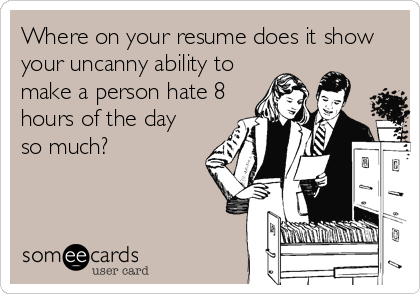Had a ton of bad managers in my life. Maybe a metric ton. I probably wouldn’t write this blog if I hadn’t, or have gone to graduate school to study “organizational development” (and now work in marketing), or most of the last few years of my life, where I’ve been trying (and sometimes succeeding, sometimes failing) to figure out everything about work and how it relates back to life.
Here’s a rather sobering contextual situation about work.
Start here, with Gallup, who has been pulling no punches when it comes to the state of employee engagement in America recently. They figure that about 35 percent of all managers are engaged with their work:
That’s fairly low, yes.
Now, a middle manager would look at this and say, “Of course, I’m always in meetings or on conference calls! How could I be engaged in my work and team?” That’s true. He/she wouldn’t be wrong. The system is set up in a way that deliverables, products, and processes are what matters. “Engagement” as a concept is about people, and people don’t really matter. Read this.
But then think about this. Let’s say you have a bad boss, or have had one. The implications aren’t just at work. To quote Gallup:
Managers influence everything that gets done in organizations. According to Gallup research, they may occupy the single most important role in workplaces throughout the world. They translate strategy into action and hold employee morale, turnover, productivity, safety and creativity in their hands. A great manager improves lives while improving performance. A poor manager makes workers’ lives miserable while destroying performance.
I couldn’t agree with this more if I tried. The problem is the “hidden” cost: you leave work and work frustrated you so much, because your manager isn’t that good. So you get home and you’re angry. And sure, seeing your family or friends or whomever takes a bit of the edge off — or maybe a drink does or whatever, sure. Or the gym. But still, your life — as in, your entire life — is being affected by the incompetence (or misunderstanding of role) of one person. That’s not good.
That’s actually a major hidden cost and it disrupts a lot of families and friend groups the world over in small (and large) ways — because crappy managers influence social dynamics. Sad, but true. We take our work home with us often. Many of us define our self-worth by our work.
I get the idea that most managers are bad, aren’t respectful, don’t understand motivation, can’t ID the strengths of others, and don’t want to be involved with their employees’ development. And for the most part, I understand where those limitations come from.
I just wish it wasn’t affecting the home/social lives of millions of people in the process.
(BTW, even though most business leaders don’t understand the idea that “increased engagement can lead you to make more money,” that Gallup article talks extensively about that.)


Reblogged this on Kenneth Leung, Thinking, Seeing, Living.
Reblogged this on Gr8fullsoul.